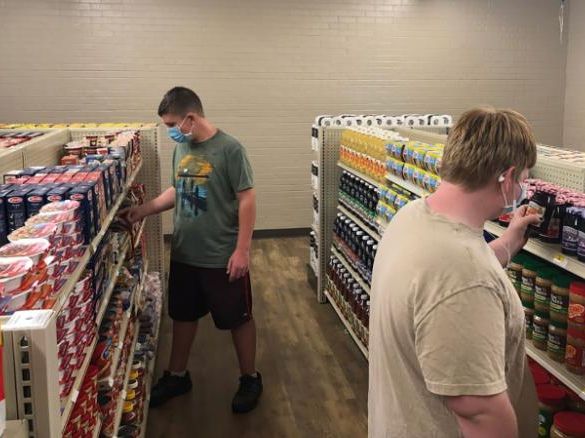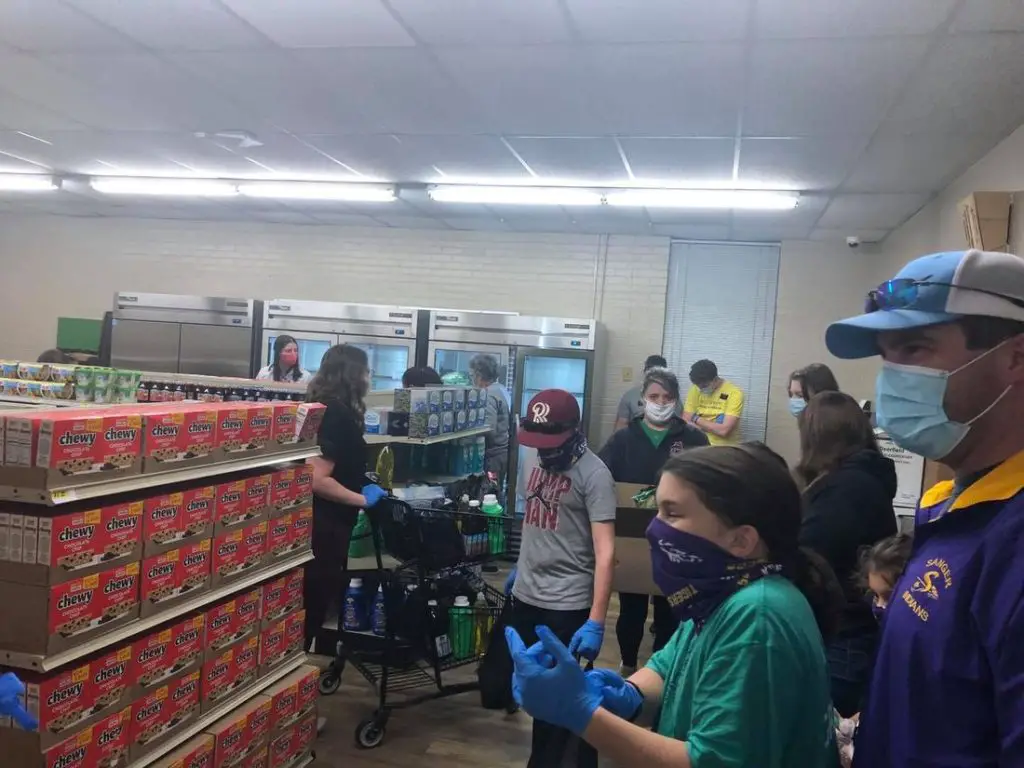In a small town in Denton County, Texas, a school has become a beacon of hope for the community. By launching a student-run grocery store to provide aid to local families.[1] [2]
Linda Tutt High in the town of Sanger opened the store in November. They allow students to buy essential supplies, including meat, toilet paper, and some other basic food products.
A points trading system dependent on family size. It allows the students of the whole school district, north of Dallas to replenish their families’ supplies.
Furthermore, beyond this, students are incentivized to earn extra points through excelling in their school work. Basically, teaching faculty and staff reward them for exemplary acts of service. Also, performing helpful functions at school like working in the library and tutoring younger elementary students.
Read: Handy Chart Shows You How Long You Can Freeze Different Foods
Student-run grocery store united against hunger
Basically, for the duration of the ongoing pandemic, the student-run grocery store will be open. From Monday to Wednesday, the school district’s students and staff focus on food supply fulfillment for students and others within their community. In addition to this, the store will be open for trading to the public for one hour every Tuesday.[2]
Inside, shelves are stocked with products for the pantry, dry goods, freshly grown produce, and household items. These are supplied by trucks from First Refuge Ministries. Additionally, funding from Texas Health Resources covers the cost of purchasing these goods. They recently allocated $300,000, allowing the Texas Health Community Impact program to target food shortages in the Independent School District of Sanger.

Accordingly, the students are the ones behind the initiative. Taking inventory, stocking shelves, addressing sales, and running the registers when customers purchase items.
Anthony Love, principal at Linda Tutt explained to WAGA-TV;
“I think the most exciting part of it is just teaching our kids job skills that they can carry with them as they graduate high school and move on into the world. Students are really the key piece to it.”
Anthony Love
The impact On the community
Within the Title 1 district, there are almost 2,750 students enrolled this year. Evidently, of those students, 43.1 percent fall under economically disadvantaged status, while 3.6 percent are without homes.[1]
“In our school district, there’s roughly 2,750 students enrolled, and throughout the district, 43% of these students are considered economically disadvantaged. About 3.6% of our students are considered homeless. We thought it was important to support them and their families and make sure they had food on the table.“
Anthony Love
A sense of responsibility
Accordingly, a junior student at Linda Tutt High, Hunter Weertman, who manages the store, said he “gets to help kids who come in and shop” and now understands “how to manage my own money properly and efficiently.“[1] [2]
While heading up operations of the student-run grocery store, Hunter also manages the schedules of employees. As well as inventory lists, supply orders, marketing items, and customer service.

“I think it makes them feel happy and grateful that they have somewhere to go, seeing their parents that may be struggling with money and stuff at home, this way they can help them. I like helping a lot of people that need the help — so this is what that’s doing.“
Hunter Weertman
Additionally, There are positions open to students at the market such as stocker, store manager, cashier, bagger and inventory monitor.
The Principle, Love, explained that a plan that Hunter and his co-manager decided to implement was the use of spreadsheets for tracking produce.
“That way they can keep an eye on items expiring soon, put them on sale and push those items so we don’t throw away any goods.“
Leading by example at the student-run grocery store
Love expressed that their aim was to have a positive impact on school districts outside their local community.[2]
“Our hope is that this program can be spread throughout the country. Also, because we know that the need for families that have food insecurities is out there. By having a program like this, integrated with the school, it builds pride and dignity for students that have food insecurity at home and that the students know they have done something to earn the groceries and food they bring home to their families.”
Keep Reading: 11 People Share Things That Should Be Taught In School

